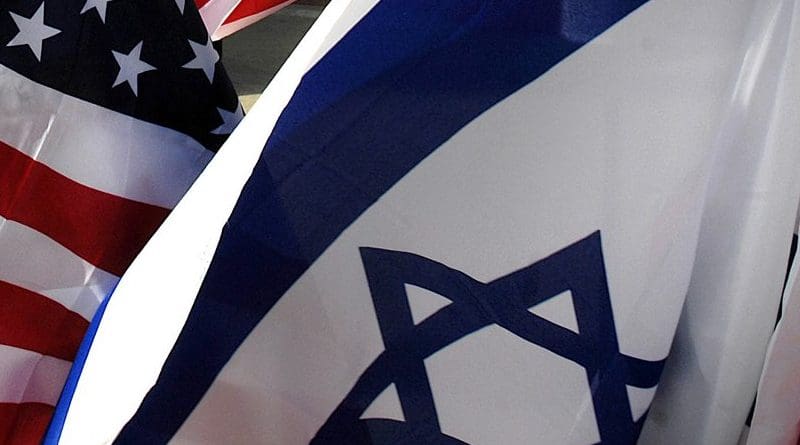AIPAC On The Ropes – OpEd
By Arab News
By Jamal Doumani*
Has the American Israel Public Affairs Committee (AIPAC), the all-powerful Israel lobby in the US, lost its clout? Has it emerged from its recent battle against the administration over the nuclear deal with Iran — a battle royal for which it had marshaled enormous resources — with its wings clipped?
Too early to say, but the once mighty lobbying giant, along with its affiliates around the country, has not sustained such a public defeat since it confronted President George W. H. Bush, and come up short, over the 1981 AWACS sale to Saudi Arabia and in the early 1990s over loan guarantees to build housing units in the colonies in the Palestinian occupied territories. But those were different times, with a different national mood. In any case, gone are the days when its operatives would swagger around the hallways of Congress, as if they owned the place — and some would aver that they did — demanding of legislators that this or that bill favoring Israel be passed, or else. AIPAC, after its bruising battle with the White House, it now seems, is today not only being cut down to size by these same legislators’ impatience with its impudence, but outflanked by fellow Jewish lobbying groups, most notably J Street, an outfit with more benign intentions.
In short, AIPAC does not instill fear in the hearts of vulnerable politicians anymore as it once had done. “The lesson that lawmakers have learned from this experience is that right-leaning pro-Israel groups are not immortal,” the Washington Post quoted Dylan Williams, vice president of government affairs for rival J. Street as saying last Sunday. “Blood can be drawn and it’s possible to stand up and say no to them and suffer no political consequences.”
Though J. Street, founded in April 2008, describes itself as a pro-Israel organization, it claims to pursue a pro-peace agenda that envisions “diplomatic solutions over military ones,” drawing the line on the expansion of Jewish colonies in the occupied territories and a two-state settlement. In 2011, however, the group’s leaders opposed recognizing Palestine as an independent state at the UN. We’ll call J. Street, then, a less belligerent and less pushy pro-Israel lobby than AIPAC, but not a less ardent one. AIPAC may have overreached when it arranged for Israeli Prime Minister Netanyahu to speak to Congress without the American president’s knowledge. Several Democratic lawmakers were offended by the speech, which they boycotted, claiming that it poisoned the political environment.
It has 100,000 members, 17 regional offices and a vast pool of wealthy donors. Its crafty ways of channeling money to congressional candidates, ensure that these candidates, once elected, will remain loyal to Israel’s cause and effectively answerable to AIPAC lobbyists.
Those few critics who have dared speak up against Israel’s excesses have accused the group of acting as an “agent” of the Israeli government, with a “stranglehold” on the US Congress, not to mention its underhanded shenanigans. Though founded in 1951, it was not till the 1970s that AIPAC achieved the clout necessary to sway congressional opinion and administration policy on the Middle East. During the Ford administration, the president, who in 1975 said that Israel’s tactics “made me mad as hell,” and called for an “assessment” of America’s relations with Israel, was pounced on by AIPAC, which orchestrated massive opposition to his plan from both houses of Congress. The end result? Ford retrenched.
Meanwhile, AIPAC kept on riding high, developing the means to influence member of Congress. They worked to unseat the few pro-Palestinian representatives there, like Congressman Paul Findley, and Sen. Charles Percy, both perceived to be “unsympathetic” to Israel.
From the 1970s till recently, AIPAC wielded absolute power. This time AIPAC may have played a stronger hand than it should have. By locking horns with President Obama, they got gored. Still, they are weakened, they are down, true, but they are not — not yet — out.

